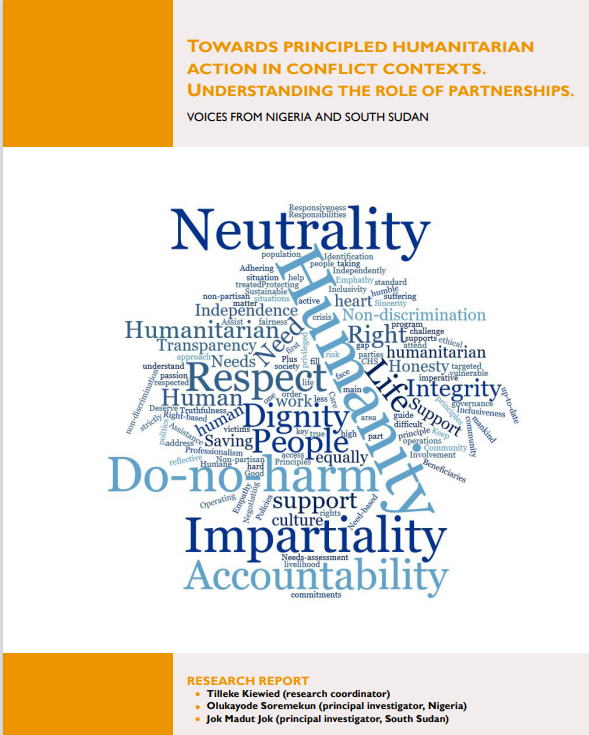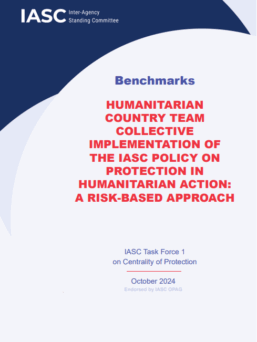Coordination between local and international actors is important in enabling a shift towards results-based protection practices. To foster an effective partnership between international agencies and local partners, there must be trust between both sets of actors to promote mutual learning, shared analysis, and collective problem solving.
Building on this notion, the International Association of Professionals in Humanitarian Assistance and Protection (PHAP) alongside its partners organized an event to launch the report “Towards Principled Humanitarian Action in Conflict Contexts – Understanding the Role of Partnerships: Voices from Nigeria and South Sudan.”

The aforementioned report consisted of two research teams who engaged with more than 123 local actors operating in the humanitarian delivery space in the states of Northeastern Nigeria and South Sudan to investigate how partnerships and humanitarian principles were implemented. The research highlighted the lack of shared understanding between partners of what principled humanitarian action means in practice.
Speaking on the lack of trust from international partners towards local partners, Gloria Soma, Director of the South Sudanese NGO, Titi Foundation attributed this lack of trust in some cases to their view that local partners had insufficient capacity or lack of understanding of humanitarian principles. As a solution, she encouraged the use of shared capacity and relational working amongst local partners for consistent efficient humanitarian action. Further fostering stronger models of humanitarian partnership, Veronique Barbelet, Senior Research Fellow, ODI/HPG emphasized the importance for the need of local actors–who bring the added value of interpreting the nuances of context and culture and creating space for their voices–to be included as a response to the hierarchical and vertical nature of current partnerships discussed in the report.


